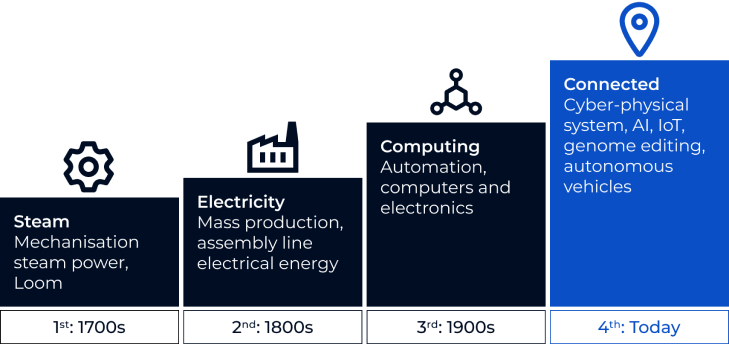
The use of Artificial Intelligence (AI) and Machine Learning (ML) in various industries has revolutionized the way organizations operate. In recent years, the field of taxation has also embraced these technological advancements to streamline processes and improve accuracy. This article explores how tax authorities and professionals are leveraging AI, including machine learning, to enhance tax compliance, data analytics, and preparation for tax inspections.

Automated Data Extraction and Analysis: One of the primary challenges in tax compliance is managing and analyzing vast amounts of financial data. AI-powered solutions, such as BALTHASAR, are designed to automate the extraction of relevant data from various sources, including invoices, receipts, and financial statements. Through machine learning algorithms, these solutions can categorize and interpret data, reducing the time and effort required for manual data entry and analysis. This not only enhances efficiency but also minimizes the risk of errors and inconsistencies.
Predictive Analytics for Tax Planning: AI and ML techniques enable tax professionals to leverage predictive analytics for effective tax planning. By analyzing historical financial data and incorporating external factors such as market trends, tax regulations, and economic indicators, AI-based systems can provide insights and recommendations to optimize tax strategies. These technologies help identify potential tax deductions, exemptions, and credits, allowing businesses to make informed decisions and maximize their tax efficiency.
Risk Assessment and Fraud Detection: Tax authorities face the challenge of identifying tax evasion and fraudulent activities. AI plays a crucial role in risk assessment by analyzing vast amounts of data and detecting patterns indicative of potential non-compliance. Machine learning algorithms can identify anomalies, unusual transactions, or suspicious tax behaviors, enabling tax authorities to focus their resources on high-risk cases. AI-based systems also improve the accuracy and efficiency of tax audits, ensuring a fair and transparent process.
Compliance Monitoring and Reporting: AI technologies streamline tax compliance monitoring and reporting processes. By integrating with financial systems and utilizing machine learning algorithms, tax authorities can detect discrepancies, assess compliance levels, and generate automated reports. These systems can proactively identify errors, omissions, or inconsistencies in tax filings, reducing the compliance burden on businesses while ensuring adherence to tax regulations. Furthermore, AI solutions enable real-time monitoring of tax-related activities, enhancing transparency and facilitating timely interventions.
Tax Policy and Regulation Development: AI tools have the potential to contribute significantly to the development of tax policies and regulations. By analyzing vast amounts of economic and financial data, AI can provide valuable insights into tax gaps, assess the impact of potential policy changes, and simulate the outcomes of different tax scenarios. These insights enable policymakers to make evidence-based decisions, optimize tax systems, and align taxation with economic objectives, fostering a fair and efficient tax environment.
The incorporation of AI and machine learning in the field of taxation has brought numerous benefits to tax authorities, professionals, and businesses. From automating data extraction and analysis to facilitating tax planning and compliance monitoring, these technologies have revolutionized tax processes, enhancing efficiency, accuracy, and transparency. As AI continues to evolve, the synergy between tax and technology will play a crucial role in shaping the future of taxation, enabling governments to implement fair and effective tax systems that cater to the needs of the private sector and government entities alike